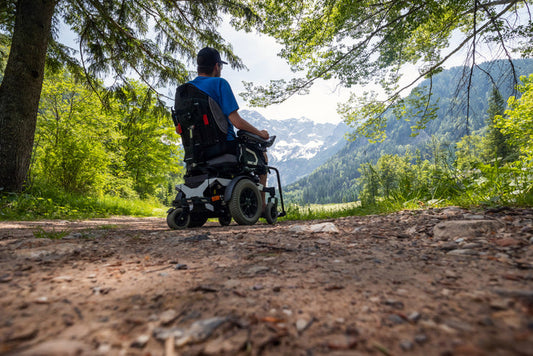
Collagen and Constipation: Is There a Link?
Collagen supplements have become one of the most popular additions to wellness routines, thought by some to help support skin, hair, nails, and even joint health. But if you’ve recently started taking collagen and noticed changes in your digestion, you might be wondering whether collagen can cause constipation. While constipation isn’t a common side effect, some people do experience it—and it’s worth looking at why that might happen, what the research actually says, and what you can do if you’re feeling blocked.
Can Collagen Cause Constipation? What the Research Says
Collagen supplements are taken because they’re touted to help with skin elasticity, hair growth, joint pain and more, though there’s little scientific evidence to support these claims. What we do know is that the side effects of taking collagen are limited so it shouldn’t hurt to try!
The most common side effects, according to the Cleveland Clinic, are headache, lightheadedness and diarrhea. Bloating, nauseousness or gas have been reported by some collagen peptide drink mix users as well. Constipation is the least likely of all of these on average, but that doesn’t mean it’s not happening to you! Most collagen supplements are well-tolerated, though their effects can vary based on dose, source, and individual health factors.
Are you taking an unusually high dose? If so, try to scale back a bit and see if that helps. It’s also the case that collagen supplements may have additional ingredients that are contributing to you feeling backed up. Look at the ingredients list. Does it contain anything else in it you know to negatively affect your digestion?
The most likely culprit, though, is that the supplement you’re taking is high in protein and low in fiber and that’s messing with your digestive system! Try adding some fiber to your diet, as we explain in the next section.
Collagen and Gut Health: What to Know if You’re Feeling Blocked
So even though it’s rare, you might have an individual digestive intolerance to the formula you’re taking. In that case, try a different collagen formula or approach. If a drink mix is upsetting your digestive tract, try a different one or even switch to a pill instead, for example.
Our key recommendations, aside from changing formulas, are to stick with the basics that we know to help with constipation:
- Stay well hydrated and pair collagen with fiber-rich foods.
- Increase fiber slowly. Soluble fiber (like psyllium) helps form soft, bulky stools.
- Start with a lower dose, increasing gradually.
- Pay attention to your body's response. If constipation or discomfort occurs, consider reducing dose, splitting it throughout the day, or pausing the supplement.
- Move your body. Physical activity helps stimulate intestinal movement.
- If symptoms persist or worsen, consult a healthcare provider.
Quick Relief if You’re Constipated
For quick relief asap, try a gentle laxative alternative like Enemeez. For people who need faster relief, an at-home mini enema is a quick, easy, non-irritating way to help trigger a bowel movement when nothing else is working.
When to See a Doctor
While the side effects of collagen supplements are generally rare and not particularly urgent, any kind of severe pain, blood, or unexplained changes in your bowel habits are something that you should speak to your GI about.
Bloating, nauseousness or gas have been reported by some collagen peptide drink mix users, so if you feel any of those symptoms, simply go off the supplement. Your doctor can absolutely look at your medical history and speak to you about the kind of supplement your body will be most likely to tolerate. Here, we can only give the best general recommendations!
Bottom Line
The key takeaway from this post is that collagen supplements don’t usually cause constipation, but it can for some. The most common side effects tend to go in the other direction, leading to gas, bloating or diarrhea, but that isn’t true for everyone!
As constipation experts, what we recommend you focus on is to stay hydrated, maintain a balanced diet, and monitor your body’s response to the supplement specifically. The extra dose of protein may be causing issues, mixed with the fact that you might not be getting the dietary fiber you need (collagen contains none!).
If you do all that and just need a quick fix for constipation, nothing is as easy as Enemeez mini enemas, which are just 5ml of liquid and trigger a normal bowel movement in 2 to 15 minutes with no irritation. While you shouldn’t rely on an enema to counteract the symptoms of continually taking a supplement that’s causing constipation, Enemeez is a gentle enough to get you through a few rough days.



